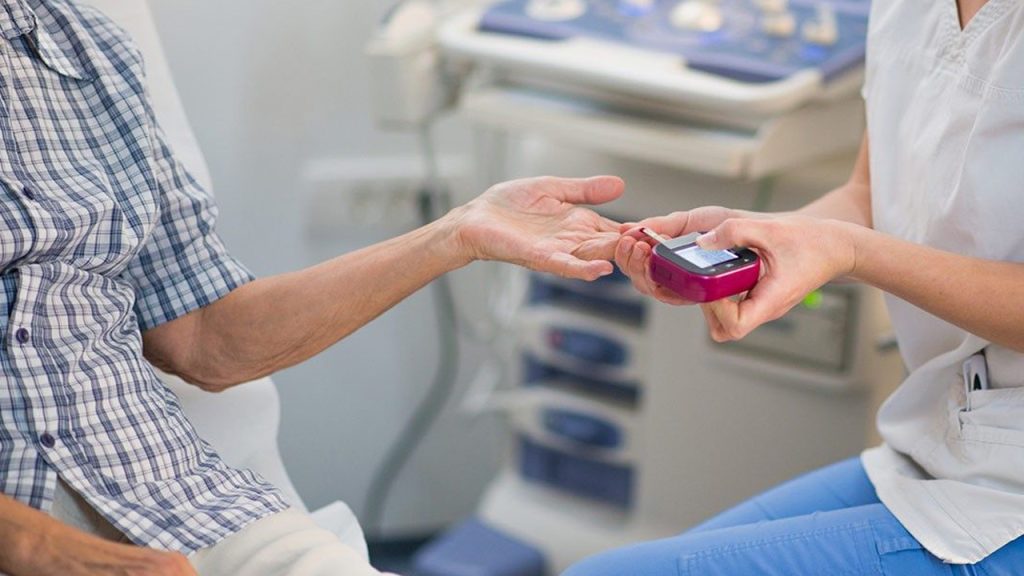Are you passionate about helping others manage their diabetes and improve their overall health? Becoming a diabetes educator could be the perfect career path for you. In this article, we will explore the steps you need to take to become a diabetes educator and make a meaningful impact in the lives of individuals living with diabetes.

Photo by astron.international
What is a Diabetes Educator?
A diabetes educator is a healthcare professional who specializes in providing education and support to individuals with diabetes. They play a crucial role in empowering patients to effectively manage their condition and make informed decisions about their health. Diabetes educators work in various settings, including hospitals, clinics, community health centers, and private practices. They collaborate with physicians, nurses, dietitians, and other healthcare professionals to provide comprehensive care to patients.
Importance of Diabetes Education
Diabetes education is essential for individuals diagnosed with the condition. It equips them with the knowledge and skills needed to successfully manage their diabetes and prevent complications. Diabetes educators provide information on various topics, including blood sugar monitoring, medication management, healthy eating habits, physical activity, stress management, and problem-solving strategies. By empowering patients with the necessary tools, diabetes educators help improve their quality of life and reduce the risk of long-term complications.
Steps to Becoming a Diabetes Educator
Education and Certification Requirements
To become a diabetes educator, you will need to acquire the necessary education and credentials. Start by obtaining a bachelor’s degree in a healthcare-related field such as nursing, dietetics, or health sciences. Some universities offer specialized programs in diabetes education or have courses dedicated to the subject. These programs provide a solid foundation in diabetes management and education principles.
After completing your bachelor’s degree, you can pursue additional training in diabetes education through a recognized diabetes education program. These programs are designed to provide in-depth knowledge about diabetes, its management, and effective teaching techniques. They cover topics such as diabetes pathophysiology, nutrition therapy, medication management, and behavioral interventions. Completing a diabetes education program will enhance your understanding of the disease and equip you with the skills necessary to educate and support patients effectively.
Once you have completed the required education, you can pursue certification as a diabetes educator. The National Certification Board for Diabetes Educators (NCBDE) offers the Certified Diabetes Educator (CDE) credential. To be eligible for the certification exam, you must meet specific criteria, including a minimum number of hours of diabetes education experience. The exam assesses your knowledge and competency in various areas of diabetes care, including assessment, intervention, and education.
Gaining Practical Experience in Diabetes Education
In addition to education and certification, gaining practical experience is crucial to becoming a successful diabetes educator. Seek opportunities to work in healthcare settings that provide diabetes education services, such as hospitals, clinics, or community health centers. These settings will allow you to interact with patients, apply your knowledge, and refine your teaching skills.
Consider volunteering or interning with organizations that focus on diabetes education and support. This will provide valuable hands-on experience and allow you to work alongside experienced diabetes educators. You can also join professional associations and attend conferences and workshops dedicated to diabetes education. These events offer opportunities to network with experts in the field and stay up-to-date with the latest advancements in diabetes care.
Building a Network in the Diabetes Education Field
Building a network of contacts in the diabetes education field is essential for career growth and professional development. Connect with other diabetes educators through professional associations, online forums, and social media groups. Engage in discussions, share experiences, and seek advice from experienced professionals. Networking can lead to job opportunities, mentorship, and collaboration on research or educational projects.
Consider becoming a member of organizations such as the American Association of Diabetes Educators (AADE) or the American Diabetes Association (ADA). These organizations provide resources, continuing education opportunities, and access to a vast network of professionals in the field. Participate in local chapter meetings, webinars, and workshops to expand your knowledge and connect with like-minded individuals.
Continuing Education and Professional Development Opportunities
To stay current in the field of diabetes education, it is crucial to engage in continuous learning and professional development. Diabetes management strategies and treatment options are constantly evolving, and it is essential to stay updated with the latest research and best practices. Attend conferences, workshops, and seminars to enhance your knowledge and skills. Take advantage of online courses, webinars, and self-study programs that offer specialized education in diabetes care.
Consider pursuing advanced certifications or specialized training in specific areas of diabetes education, such as pediatric diabetes care or diabetes and pregnancy. These additional credentials can broaden your expertise and make you a more valuable asset in the field. Stay connected with the latest research by subscribing to reputable medical journals and joining online communities dedicated to diabetes education.
Resources for Aspiring Diabetes Educators
Several resources can aid aspiring diabetes educators in their career journey. The American Association of Diabetes Educators (AADE) provides comprehensive resources, including educational materials, practice tools, and networking opportunities. The National Certification Board for Diabetes Educators (NCBDE) offers information on certification requirements and study materials for the Certified Diabetes Educator (CDE) exam. The American Diabetes Association (ADA) also provides educational resources, clinical guidelines, and research updates related to diabetes care.
Numerous online platforms offer free or paid courses on diabetes education and related topics. These courses cover subjects such as diabetes management, lifestyle interventions, and patient education techniques. Online forums and social media groups dedicated to diabetes education can also serve as valuable resources for sharing knowledge, asking questions, and connecting with others in the field.
Job Prospects and Salary Expectations for Diabetes Educators
The demand for diabetes educators is expected to grow as the number of individuals diagnosed with diabetes continues to rise. Healthcare organizations recognize the importance of diabetes education in improving patient outcomes and reducing healthcare costs. Diabetes educators can find employment in various settings, including hospitals, clinics, community health centers, and insurance companies.
According to the Bureau of Labor Statistics, the median annual wage for healthcare educators, including diabetes educators, was $57,340 in May 2020. However, salaries can vary depending on factors such as education, experience, geographic location, and the employing organization. With experience and additional certifications, diabetes educators can advance to leadership roles or pursue opportunities in research or academia.
Conclusion
Becoming a diabetes educator offers a rewarding and fulfilling career path for individuals passionate about helping others manage their diabetes. By acquiring the necessary education, certification, and practical experience, you can make a meaningful impact in the lives of individuals living with diabetes.
Stay committed to continuous learning and professional development to provide the best care possible and stay up-to-date with the latest advancements in diabetes management. With dedication and a genuine desire to make a difference, you can become a trusted and respected diabetes educator, empowering patients to live healthier lives.




